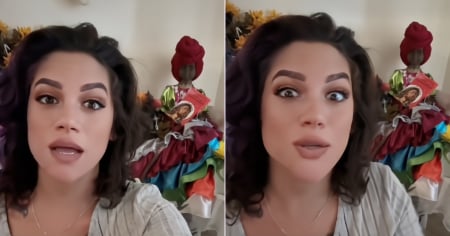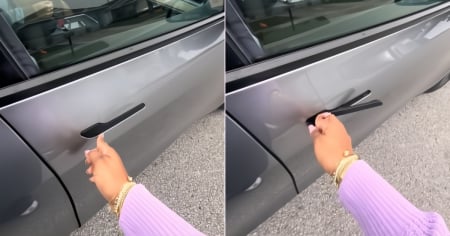A viral video on TikTok, posted by the user @leidycienfeguera2022, has sparked conversation about the cultural and linguistic traits of Cubans in their personal relationships. The creator of the video shares an important piece of advice for those embarking on a relationship with someone born in Cuba, especially if they are not familiar with their manner of expression.
“If you start a relationship with a Cuban and have never been with someone from our country, and you hear us calling someone ‘my love,’ ‘my life,’ ‘my heart,’ as a term of endearment, don’t be alarmed. We use those terms with all kinds of people. It’s our way of showing empathy, it’s our dialect. It doesn't mean we want to flirt with anyone or that we’re interested in someone just because we say that,” he said.
This peculiarity in everyday language can, according to the TikToker, lead to misunderstandings in international couples. The user also mentions observing how this form of communication has affected relationships between Cubans and people from other cultures who, due to their unfamiliarity with these characteristics, may misinterpret these expressions of affection as flirting.
In Cuba, affectionate terms like "my life," "my love," or "my heart" are widely used in social contexts, even with strangers, as a display of empathy, closeness, or warmth.
It is part of the cheerful and outgoing nature that often characterizes Cubans, but it can be disconcerting for those coming from more reserved cultures when it comes to affectionate expressions.
The video, which has garnered thousands of views, has sparked debates among users sharing similar experiences. Some claim that this feature has helped them better understand their Cuban partners, while others note that they still find it difficult to adapt to this form of communication.
In an increasingly globalized world, cultural differences are a source of wealth, but also of potential misunderstandings. For those who have a relationship with a Cuban, understanding these particularities can be key to building a relationship based on understanding and respect.
This topic not only highlights the importance of understanding each other's language and culture but also values the richness that comes with an intercultural relationship.
Frequently Asked Questions about Intercultural Relationships with Cubans
Why do Cubans use affectionate terms with strangers?
Cubans commonly use affectionate terms like "my life," "my love," or "my heart" in their social interactions, even with people they do not know well. This cultural practice is an expression of empathy, warmth, and closeness, and should not necessarily be interpreted as an attempt at flirtation. It is important to understand this characteristic to avoid misunderstandings in intercultural relationships.
What key advice is essential to avoid misunderstandings in a relationship with a Cuban?
Understanding and accepting cultural differences is essential to avoid misunderstandings in a relationship with a Cuban. Familiarizing oneself with their way of communicating, which includes the everyday use of affectionate expressions, can help build a relationship based on respect and mutual understanding.
How can the use of affectionate expressions affect international couples?
The use of affectionate expressions such as “my love” or “my life” by Cubans can lead to misunderstandings in international relationships, as people from different cultures may interpret these words as signs of flirting or romantic interest. Understanding the cultural intent behind these expressions can help minimize conflicts and strengthen the relationship.
Filed under:





